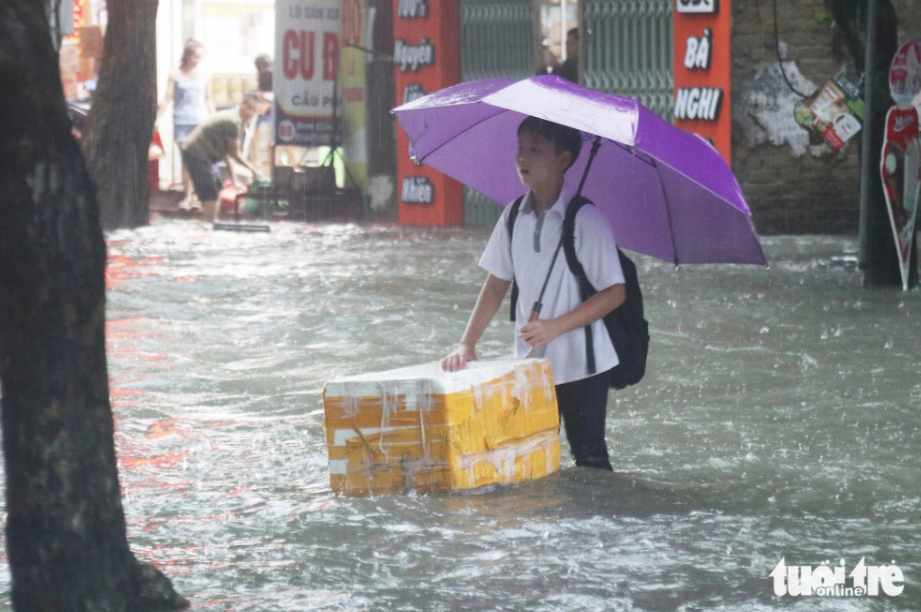Serious flooding in central Vietnam has killed three people and forced more than 10,000 residents to evacuate their homes, disaster officials said on Tuesday.
Earlier this month large swathes of the country's north were devastated by flooding in the wake of typhoon Yagi, which left nearly 300 people dead and caused $1.6 billion worth of damage.
But as Yagi floodwaters began to recede in the north, central Vietnam was last week struck by another severe storm which brought heavy rain and sent river levels dangerously high.
Disaster management officials in Thanh Hoa Province said Tuesday that over the past three days more than 11,700 people had left their homes -- many of them partially submerged -- for higher ground.
In neighbouring Nghe An Province, three people were reported dead after being swept away in flashfloods.
Since Saturday, around 320 houses have been damaged while more than 6,300 hectares of crops were destroyed, the ministry of agriculture said, adding that at least 40 school buildings in the area were flooded or damaged.
In northern Thailand, flash floods triggered by heavy rain have killed two people in Lampang province and affected 1,500 households, the kingdom's Department of Disaster Prevention and Mitigation said on Tuesday.
Authorities have also urged people living along the swollen River Wang to move to safety.
Northern Thailand, Myanmar and Laos were all badly hit by typhoon Yagi, with 702 fatalities reported.
Myanmar was worst hit with 384 deaths, followed by Vietnam with 299.
Nearly 1,000 schools across Vietnam and Thailand have been damaged since early September, forcing children out of classes, according to Save the Children.
In Hanoi, some homes on the outskirts of the capital remain partly under water two and half weeks after Yagi hit, and farmers are still battling with the aftermath of flooded fields.
Rice farmers could be seen Tuesday harvesting their crop weeks earlier than usual, trying to save anything that had not yet been destroyed.
"We lost almost all our crops. We cut the rice today in a hope to save as much as we could," 60-year-old Dinh Thi Thu told AFP.
Vietnam is prone to tropical storms, which often bring in deadly flash floods and landslides, hitting the country between June and November every year.
But human-made climate change is causing more intense weather patterns that can make destructive floods more likely.


















































